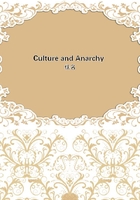
第21章
26 Other well-meaning friends of this new power are for leading it, not in the old ruts of middle-class Philistinism, but in ways which are naturally alluring to the feet of democracy, though in this country they are novel and untried ways. I may call them the ways of Jacobinism.
Violent indignation with the past, abstract systems of renovation applied wholesale, a new doctrine drawn up in black and white for elaborating down to the very smallest details a rational society for the future,--these are the ways of Jacobinism. Mr. Frederic Harrison and other disciples of Comte,--one of them, Mr. Congreve, is an old friend of mine, and I am glad to have an opportunity of publicly expressing my respect for his talents and character,--are among the friends of democracy who are for leading it in paths of this kind. Mr. Frederic Harrison is very hostile to culture, and from a natural enough motive; for culture is the eternal opponent of the two things which are the signal marks of Jacobinism,--its fierceness, and its addiction to an abstract system. Culture is always assigning to system-makers and systems a smaller share in the bent of human destiny than their friends like. A current in people's minds sets towards new ideas;people are dissatisfied with their old narrow stock of Philistine ideas, Anglo-Saxon ideas, or any other; and some man, some Bentham or Comte, who has the real merit of having early and strongly felt and helped the new current, but who brings plenty of narrowness and mistakes of his own into his feeling and help of it, is credited with being the author of the whole current, the fit person to be entrusted with its regulation and to guide the human race.
27 The excellent German historian of the mythology of Rome, Preller, relating the introduction at Rome under the Tarquins of the worship of Apollo, the god of light, healing, and reconciliation, will have us observe that it was not so much the Tarquins who brought to Rome the new worship of Apollo, as a current in the mind of the Roman people which set powerfully at that time towards a new worship of this kind, and away from the old run of Latin and Sabine religious ideas. In a similar way, culture directs our attention to the natural current there is in human affairs, and to its continual working, and will not let us rivet our faith upon any one man and his doings. It makes us see, not only his good side, but also how much in him was of necessity limited and transient; nay, it even feels a pleasure, a sense of an increased freedom and of an ampler future, in so doing.
28 I remember, when I was under the influence of a mind to which I feel the greatest obligations, the mind of a man who was the very incarnation of sanity and clear sense, a man the most considerable, it seems to me, whom America has yet produced,--Benjamin Franklin,--I remember the relief with which, after long feeling the sway of Franklin's imperturbable common-sense, I came upon a project of his for a new version of the Book of Job, to replace the old version, the style of which, says Franklin, has become obsolete, and thence less agreeable. 'I give,' he continues, 'a few verses, which may serve as a sample of the kind of version I would recommend.' We all recollect the famous verse in our translation: 'Then Satan answered the Lord and said: "Doth Job fear God for nought?"' Franklin makes this: 'Does Your Majesty imagine that Job's good conduct is the effect of mere personal attachment and affection?' I well remember how when first I read that, I drew a deep breath of relief, and said to myself: 'After all, there is a stretch of humanity beyond Franklin's victorious good sense!'
So, after hearing Bentham cried loudly up as the renovator of modern society, and Bentham's mind and ideas proposed as the rulers of our future, I open the Deontology . There I read: 'While Xenophon was writing his history and Euclid teaching geometry, Socrates and Plato were talking nonsense under pretence of talking wisdom and morality. This morality of theirs consisted in words; this wisdom of theirs was the denial of matters known to every man's experience.' From the moment of reading that, I am delivered from the bondage of Bentham! the fanaticism of his adherents can touch me no longer. I feel the inadequacy of his mind and ideas for supplying the rule of human society, for perfection.
29 Culture tends always thus to deal with the men of a system, of disciples, of a school; with men like Comte, or the late Mr. Buckle, or Mr. Mill. However much it may find to admire in these personages, or in some of them, it nevertheless remembers the text: 'Be not ye called Rabbi!' and it soon passes on from any Rabbi. But Jacobinism loves a Rabbi;it does not want to pass on from its Rabbi in pursuit of a future and still unreached perfection; it wants its Rabbi and his ideas to stand for perfection, that they may with the more authority recast the world; and for Jacobinism, therefore, culture,--eternally passing onwards and seeking,--is an impertinence and an offence. But culture, just because it resists this tendency of Jacobinism to impose on us a man with limitations and errors of his own along with the true ideas of which he is the organ, really does the world and Jacobinism itself a service.